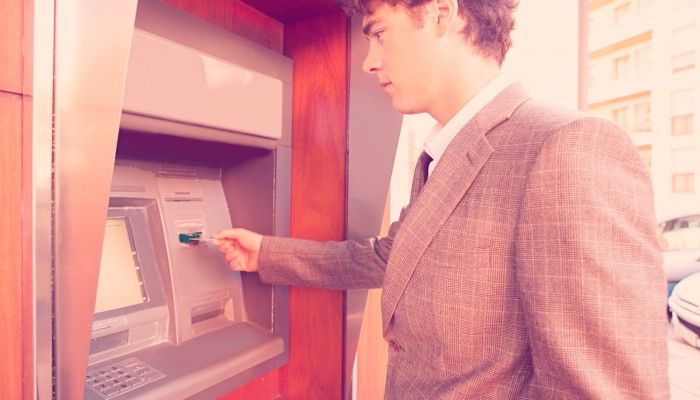- Related Articles
- Understanding Your Payslip
- National Insurance
- Banking
- Income Tax
- Employee Benefits
If you’ve read our guide to banking, you’ll hopefully now know that a bank account isn’t just a more convenient and secure version of stashing money under your mattress.
But although we use our bank accounts every day, how a bank actually works can be a bit of a mystery! We’ve pulled back the curtain to find out exactly what’s going on back there…
Fee or Free?
There are some bank accounts that charge a monthly fee, in return you might get travel insurance, cashback or a better rate of interest. But for most of us, our accounts don’t cost anything up front.
This might seem obvious. After all, it’s your money in there, why should you pay to get at it?! But it hasn’t always been this way, ‘free’ banking only arrived in the UK in the 1970s and in many other countries it’s common to pay for cash withdrawals or pay a monthly fee.
Alright then, what does my account cost the bank?
When you think about it, a bank account is a service the bank provides. And it costs money to provide that service. You might get:
- Physical, online, mobile and phone banking services. Banks have to develop these and keep the technology a step ahead of criminals!
- A debit card with chip and pin and contactless payment technology.
- Free debit card transactions at many retailers. Every time you use this, your bank pays a small fee to the company that accepts the card transaction for the retailer.
- Free cash withdrawals at their and other banks’ machines, if you withdraw money at another bank’s ATM, your bank pays a small fee to that bank.
- An interest-free overdraft or credit card so you can borrow money from them without paying any extra back.
If you use your overdraft and credit card carefully, you could easily never pay the bank anything, despite using those services for years!
And where does that money go?
If you’ve got money in your account, it’s not in a box marked Joe Bloggs waiting for you any time you need to take out a tenner. In fact, only about 3% of the total money in the economy is physical cash that you can see and touch. The rest is made up of risk-assessed loans, known as bank deposits. In a way that might make your head spin, it’s essentially money created out of thin air! (This article here helps describes this some more.)
Because of that, at any given moment, a bank has less physical money available for withdrawals than the total amount people have deposited. Which means if everyone wanted to withdraw all their money in cash at the same time, it would be impossible. That’s called a ‘run on the banks’.
But even if that happens, any savings or current account balance up to £85,000 held with a bank, building society or credit union is protected under the Financial Services Compensation Scheme.
So how do they make money?
Let’s face it, no company is going to offer a service like a bank account out of the goodness of their heart. These are some of the main ways banks cover the cost of providing free current accounts:
- Interest forgone: banks lend a huge amount of money to people and they don’t have that much just lying around! It’s a lot cheaper for them to use the money you’ve deposited than to borrow it from other banks, so they save money.
- Interest on lending: although some current accounts do offer interest, it’s less than the interest those banks charge for borrowing using an overdraft, credit card or loan. So the difference between interest banks pay on deposits and the interest they receive on lending works out as a profit for the bank.
- Fees and charges: banks might charge daily interest for overdrafts or for exceeding your limit, or if you try to make a payment without having enough money in your account.
What does this mean for me?
Understanding what a bank does with your cash is helpful if you want to stay on top of your money, it’s more complicated than you might have thought! And it doesn’t just affect your current account, it has a knock-on effect on anything your bank offers, from credit cards to overdrafts.
It also means that even if your account is ‘free’, you need to be careful about the fees you might be charged. Banks can only offer free accounts because of money they make elsewhere, including from charges, so if you’re regularly getting into difficulty, you’re paying for other people’s accounts as well as your own!
What’s next?
If you want your money to work for you, you need to know what it’s currently doing. So now you know what it does in the bank, find out what it’s doing for you by making a plan with our Budget Builder
- Related Articles
- Understanding Your Payslip
- National Insurance
- Banking
- Income Tax
- Employee Benefits
